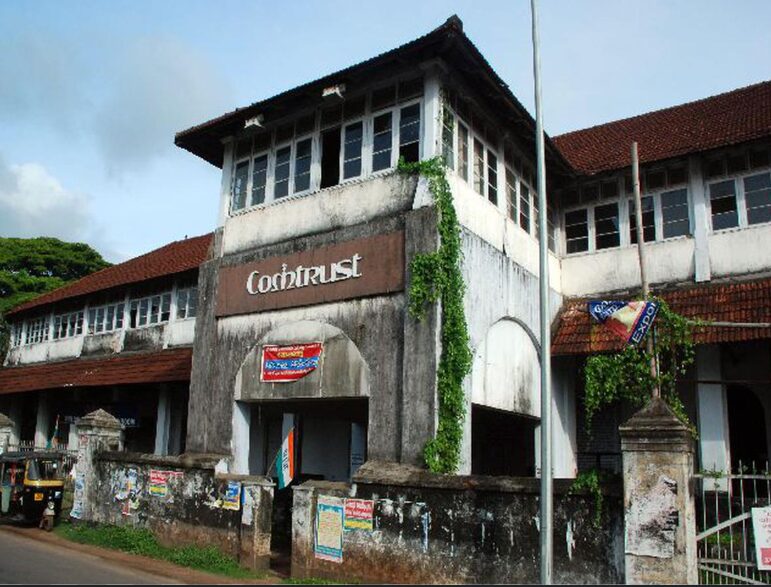Comtrust Weaving Factory in Kozhikode is a cultural and industrial icon, its story weaving through almost two centuries of transformation, innovation, and community legacy. More than just an old building, it’s a living, breathing part of the city’s soul, its story intertwined with the very fabric of Kozhikode itself. The name “Comtrust” is a shortened form of Commonwealth Trust, but its roots go back even further, to the German Basel Missionaries who established the Commonwealth Handloom Weaving Factory in 1844.
A Pioneer of Industry and Social Welfare
The Basel Missionaries were not just religious figures; they were also pioneers of industrialization in Malabar. They recognized the region’s rich tradition of weaving and introduced modern looms and techniques, transforming local craft into an export-oriented industry. The factory, initially known as the “Mission Shop,” quickly gained a reputation for producing high-quality textiles. It provided employment and stability to a large number of local residents, especially the marginalized and less-educated. The ethos was one of charity and community upliftment, a principle that guided its operations for generations.
The factory’s output was legendary. It produced a wide variety of clothing materials, from shirts and pants to bed sheets and Turkish towels. Its products were so highly regarded that they were exported to international markets, and it’s said that even the British Queen was among its esteemed customers. The factory also supplied upholstery to leading airliners and even made specialized fire-resistant woollen cloth for seat covers. The term “Calico,” a type of cotton fabric, is believed to have originated from “Calicut” (Kozhikode), a testament to the city’s, and by extension Comtrust’s, significant role in the global textile trade.
The End of an Era and the Battle for a Legacy
For over 160 years, Comtrust was a pillar of the Kozhikode community. However, the winds of change brought new challenges. In 2009, citing financial losses, the Commonwealth Trust Handloom Weaving Factory was shut down. This closure marked a tragic turn for the hundreds of skilled weavers and workers who had dedicated their lives to the factory. The once-bustling halls fell silent, and the state-of-the-art machinery began to rust. The closure sparked a long and arduous battle by the workers to get the factory reopened and their jobs restored. Their fight, often marked by disappointment and broken promises, became a symbol of the struggle between industrial heritage and the pressures of modern-day economics. While the Kerala government passed a bill in 2012 to take over the company, the process stalled, leaving the fate of the factory and its workers in limbo. The once-pristine building, a heritage asset located near the scenic Mananchira pond, became a dilapidated shell, its historical significance overshadowed by neglect and the passage of time.
A New Chapter: Community, Health, and Heritage
The story of Comtrust didn’t end with the factory’s closure. The spirit of Comtrust lives on through the Comtrust Charitable Trust, which shifted its focus to healthcare, especially eye care. Founded in 1999, the Comtrust Eye Hospital has become a leading provider of affordable, quality eye care in North Kerala, with special attention to helping poor and underprivileged people. The hospital is equipped with advanced technology and staffed by dedicated professionals, offering free eye screening camps, subsidized treatments, and even operating an eye bank for corneal transplants. These charitable activities reflect the same values of community service and care that guided Comtrust for generations. Additionally, efforts are underway to preserve and revive the original Comtrust factory site. The Indian Institute of Architects in Kozhikode is running a national competition called “Reweave Kozhikode,” inviting innovative designs to reimagine the historic area and connect its rich past to a vibrant future. In this way, Comtrust continues to symbolize Kozhikode’s heritage of resilience, charity, and pioneering spirit showing how the legacy of a once-thriving industry can find new life through service and community renewal.

